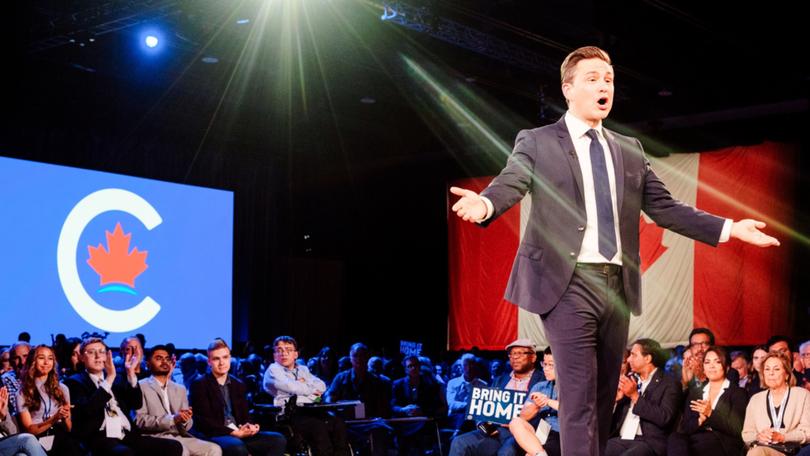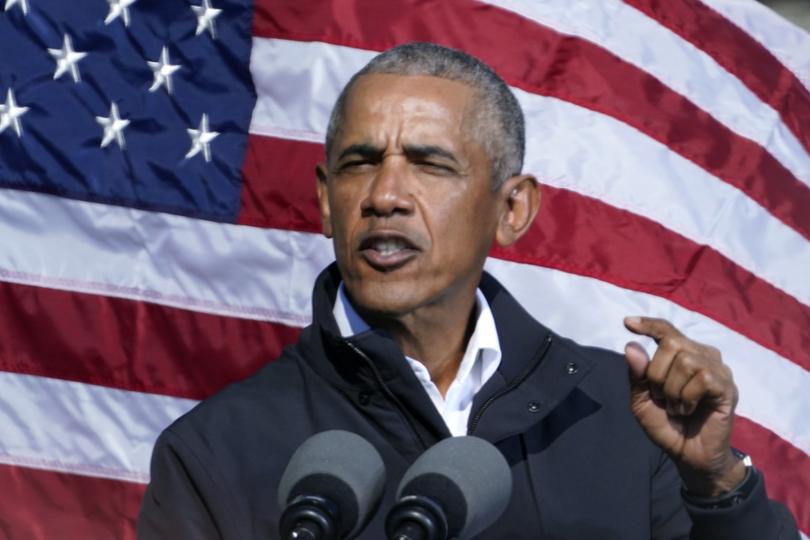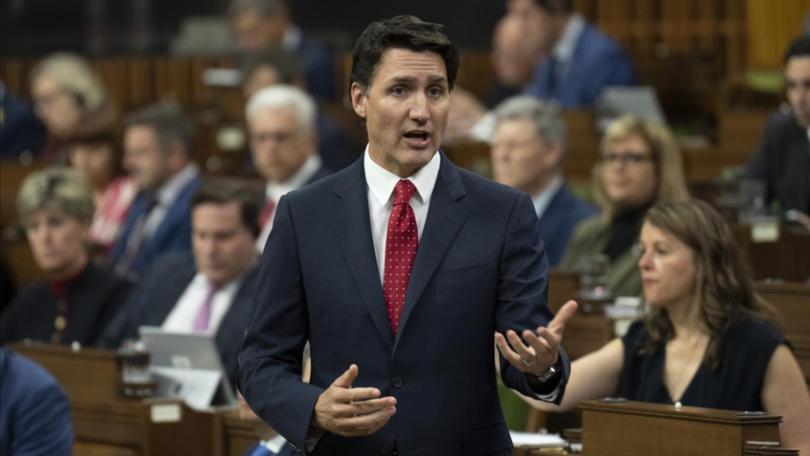ANDREW CARSWELL: Canada’s hard-right PM-in-waiting Pierre Poilievre shows way forward for Australian Liberals
Australia’s changing demographics pose genuine questions: How does a Liberal party win back government when its voter base is busy meeting their maker? Canada’s hard right PM-in-waiting shows a way forward.

Poor baby boomers.
Criticised by jealous middle-aged folk for hoovering up the wealth, and locking it all away. Despised by the youth for compounding the rental and housing crisis for daring to hang on to their family home. Held liable for pushing up inflation because of their penchant for fine wine and fancy cruises.
Now they are copping the blame for dying.
Sign up to The Nightly's newsletters.
Get the first look at the digital newspaper, curated daily stories and breaking headlines delivered to your inbox.
By continuing you agree to our Terms and Privacy Policy.Apparently, every death of a baby boomer is another nail in the coffin of conservatism; part of the advancing inevitability of demographic change that will forever alter our political landscape, and entrench progressivism. The ageing right passing the baton to the young left.
Or so the logic goes.
Certainly, Australia’s changing demographics pose genuine questions: How does a Liberal party win back government when its voter base is busy meeting their maker? How do conservatives regain power when the usual notion of “everyone votes left, till they grow up” can no longer be relied on, given a more socially aware, climate-focused Gen X?
But the gradual exit of baby boomers has pollsters jumping at shadows, predicting scenarios narrowly based on the current political cycle and a misguided belief that voters never change their political stripes.
Case in point, the highly capable Labor pollster Kos Samaras, who criticised a Twitter punter last month for suggesting the Liberals could win in a landslide in 2028 after the country was subjected to an unwieldy Labor-Greens-teals minority government in the next term.
“100,000 boomers will die every year from now on. That landslide will not happen,’’ Samaras declared.
History is littered with such rash political prophecies.
Barack Obama’s emphatic victory in 2008 was going to usher in a new era of progressive politics, fuelled by rising immigration, that would transform the political fabric of the US. As one politico warned, Democrats were “on the cusp of a permanent victory’’.

For better or for worse, Donald J. Trump interrupted proceedings.
And here, history is about to repeat itself. Despite minorities steadily becoming the majority, despite older white conservatives passing on, despite rampant immigration supposedly expanding the Democratic base, Trump is “on the cusp” of painting the White House red again, having increased his support among Latinos and African Americans. You know, the ones that were going to lock in the left forever.
Across the Netherlands, that bastion of progressive politics and radical social policy, a Prime Minister who makes Pauline Hanson look teal is now in power. Add a few more nations that have swung to the far right in recent months: Italy, Finland, Greece, and Argentina.
Demography can be a guide, but to paraphrase political academic Yascha Mounk, woe is he who sees it as destiny.
But while history is instructive, the present tends to be more illuminating. And it offers great hope to a local Liberal party desperately trying to work out what it stands for, who it stands for, and whether that even matters anymore.
That hope is Pierre Poilievre, a deeply conservative leader who, barring a catastrophe, will become Canada’s next prime minister, thanks in part to a once-unfathomable wave of support from millennials.
The very voters — those cool cat young Canadians who propped up the smooth-talking Justin Trudeau and gave him star power, street-cred, and the imprimatur to deliver dramatic social change — are about to vote Conservative.

Not a typo.
Adopted into a French-Canadian family, Poilievre is not some beacon of moderate thinking who has snatched the attention away from Trudeau by being Trudeau-lite. Far from it. He ranges across the spectrum, he strays into the fringe right, and he is hard to pin down. He is pro-choice, he rails against “radical gender ideology” in schools. He wants more immigration, he wants fewer restrictions on gun owners. He is explosive, he is considered. Some days he’s French, some days Canadian.
But he communicates exceptionally well to young people — in their face, through their mediums, on their issues — attaching himself to the core gripes of young Canadians: housing affordability and cost of living.
All delivered with authenticity and humour. Without being a Tory try-hard.
Abacus Data puts current support for Trudeau’s government among millennials at a mere 20 per cent, while support for the Poilievre’s Conservatives within the same cohort has jumped to a staggering 41 per cent.
This colossal shift is not about personality, although that helps. It’s a concentration on what matters most, and the ability to not only apportion blame for government failures, but articulate solutions.
And right now, what matters most isn’t climate change.
It was once, but when you can’t see yourself ever being able to afford a home, reducing emissions seems a bit second order.
Abacus Data polling says more baby boomers (28 per cent) believe climate change is their top concern than millennials (19 per cent).
Who would’ve thought in 2024-25 — even in Canada, that feted nirvana of social change — a conservative political leader could rise to the top without running to the left on climate and social policy.
There are indelible lessons here for the Coalition which consistently struggles with millennials and risks fulfilling Samaras’ grim prophecy.
You can work effectively with demographic change. It is possible. It has been done. It is being done.
You just have to talk to the living, not just the dead.
Oh, and maybe find them a house.
Andrew Carswell is a political strategist and former adviser to the Morrison government.
